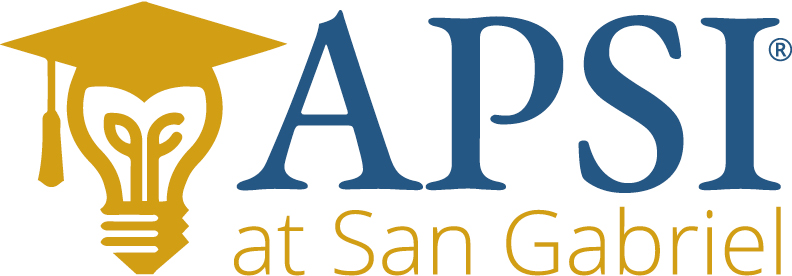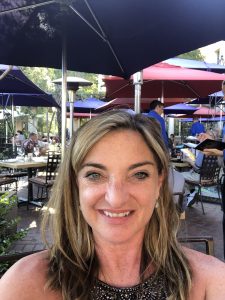Kathleen Hale
Kathleen Lynch Hale is a native of Rumson, NJ who has taught primarily in San Diego and Hawaii for 22 years. She earned her B.A. from Hamilton College in English with a minor in French and also holds an M.A. in English Literature from S.U.N.Y. Albany and an M.A. in English Education from Teachers College, Columbia University. She currently teaches AP English Literature and ERWC at Mission Hills High School in San Marcos, CA and over the past two decades has taught grades 7-12.
Kathy has served as an AP English Literature instructor for over 22 years in San Diego and Hawaii. She has attended the AP Literature Reading seven times in Louisville and Kansas City, a professional development opportunity that has significantly shaped her teaching practice. Kathy has also worked as AP Coordinator at her site and as AP Mentor for College Board. Other leadership roles that she has held and currently holds in San Marcos Unified School District include serving as English Team Leader, a site Leadership Team member, a beginning teacher induction coach and district leader, Western Association of Schools and Colleges, visiting committee member, and Pageantry Director over Cheer and Dance teams.
As a life-long learner, Kathy has recently completed her preliminary credential in administrative services. In addition to her English credential, she also holds a supplemental one in Dance and is currently finishing her French credential. Kathy is married to Jonathan Hale, her college sweetheart, and is the proud mom of two high school sons.
Course Description
This AP English Literature week-long training is designed for both new and experienced instructors. As College Board has made some key changes in the course both with the six-point rubric for 2020 and with the Digital Platform now online, teachers will learn how to use the new rubric and how to use the Digital Platform (including Unit Guides, Personal Progress Checks, the Dashboard and the Question Bank) with confidence. We will learn how this online platform provides a wealth of practice materials for both Multiple-Choice and Free-Response formative and summative assessments.
Every day, we will explore one area in depth such as prose, poetry or a longer work of literature. Teachers will analyze the new six-point rubric for each question and then score and discuss anchor papers using it. Every day, teachers will have time to customize the material and create lesson plans ready for instructional use. We will also cover building and/or editing a course syllabus through a lens of equity and access.
Each teacher will receive a binder from College Board that replaces the old Acorn book as well as supplemental binder materials from the instructor with graphic organizers, lessons, frames, literary resources and other student-friendly materials. This APSI is all about helping teachers understand the course changes, become familiar with the digital resources, acquire more instructional strategies, and customize materials to take home to their AP Lit students.
Agenda
Day One
- Equity and Access — College Board policy
- College Board Handbook for English Lit
- AP English Lit Changes and Digital Platform — Resources
- Your Course at a Glance — Unit Guides, I/IV
- Focus on Unit I for Short Fiction I — “The Awakening” by Kate Chopin — character analysis + THESIS
- Question 2: Prose — 2018 prompt, 6-point rubric, anchor papers, scoring guides — Key instructional strategies?
- Examine and discuss new prose rubric
- Multiple-Choice strategies, changes and practice (prose)
- The Reading — a stellar PD opportunity
- Prose passage 2019 exam– re-scoring using new rubric
- Your Course at a Glance–Personal Progress Checks II/IV
- Digital Platform — Prose resources available for students
- Reflection, Key instructional strategies and Comments
- Writing Resources and Lessons (binder or chrome book)
Day Two
- Review and Reflection
- Focus on Unit 2 for Poetry — I Am Offering This Poem” by Jimmy Santiago Baca — group activity + Open vs. Closed Poetry units — time to brainstorm texts
- Question 1 Poetry– 2018, 6-point rubric, anchor papers, scoring guide — What poetic elements differ from prose? Arrange in correct scoring order
- Examine and discuss new poetry rubric
- Resource — Introductions and Conclusion
- Passive Voice — the essay killer + composition skills
- Time to work on own units and lessons
- Essay organization options using 2019 poetry prompt
- Digital Platform — Poetry resources available for students
- Reflection, Comments, Key Instructional strategies and Closing Comments
Day Three
- Review and Reflection — Lit Terms — “The Landlady”
- Focus on Unit III for Longer Work of Fiction
- Begin with the end in mind — Backwards Planning
- Unit 3 Sample Instructional Activity — Hamlet soliloquy
- Question 3, Open Q — 2018, 6-point rubric, anchor papers, scoring guide — Key instructional strategies
- Digital Platform — Long Fiction resources available for students
- Examine and discuss new open Q rubric
- Balancing texts — Classic/contemporary, Brit/American
- Review units plan for Shakespeare’s Hamlet
- Teaching Theme — strategies for student success
- Open Q Graphic Organizer — instructional strategy
- Writing and Composition folder — Ongoing lessons
- Organizing the course + syllabus
- Reflection, Comments, Key instructional strategies and Closing Comments
Day Four
- Re-visit MC — how to build it into course framework
- College Board Handbook for English Lit
- AP English Lit Changes and Digital Platform live
- Your Course at a Glance — Unit Guides, I/IV
- New Digital Platform coming August 1st & AP Central
- Grading strategies
- Unit Guides — Prose, poetry, longer text
- Syllabus discuss, models and time — outline or draft
- AP Central — other areas to explore and use
- AP Study Form and Quotes and Notes
- Final Writing Lessons and Resources
- Equity and Access Statement — revisit
- Share instructional strategies to take back to classroom plus how to differentiate

















